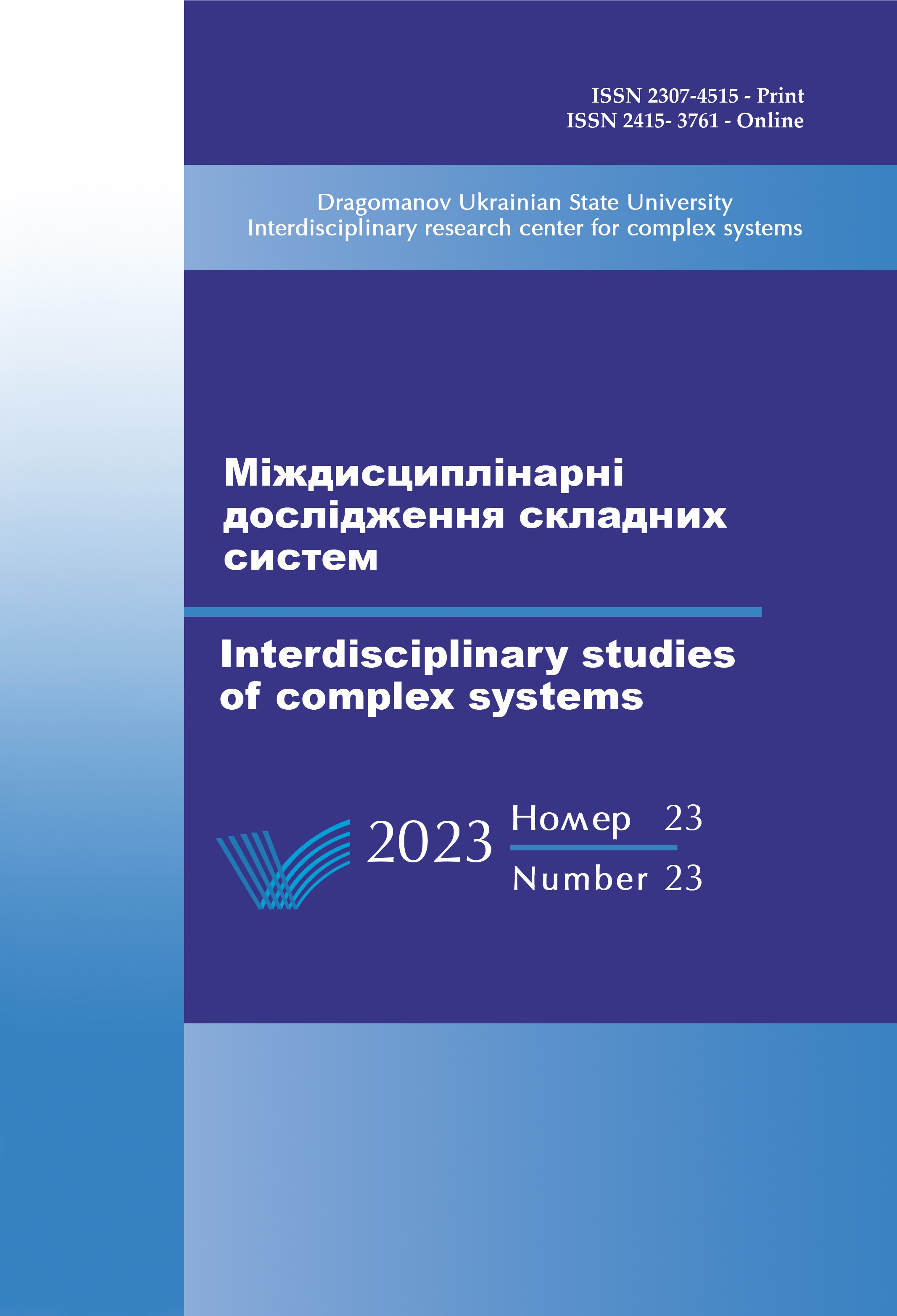The Main Strategies of Education Development In The Context of The Ukraine's Peace Formula
DOI:
https://doi.org/10.31392/iscs.2023.23.015Ключові слова:
Ukraine’s peace formula, education modernization, civilization progress, ideologyАнотація
The study makes a socio-philosophical and philosophical-educational explication of the education development strategy aimed at the effective implementation of the Ukraine’s peace formula, proposed as a road map for the cessation of military aggression by Russia. The article provides a historical-philosophical analysis (19th – 21st centuries) of the ideological foundations and prerequisites for the attack on Ukraine, which formed the basis of indoctrination, the task of which was implemented by educational systems in the territories of the Russian Empire, the USSR, and contemporary Russia. The author managed to demonstrate the deep axiological rootedness of Russian education in the narratives of revanchism, neo-totalitarianism, etc. The study proves that it is Ukrainian education that can act as an effective tool for the implementation of the ideas of democracy and human dignity, formulated by outstanding domestic thinkers of the 20th – 21st centuries (Bohdan Gavrylyshyn, Myroslav Popovych, Oles Honchar, Ivan Dzyuba, etc.), and Western intellectuals (Noam Chomsky, Charles Taylor, Jacques Rancière, Peter Sloterdijk, Hans Ulrich Gumbrecht, etc.).
The author demonstrates that the Ukraine’s peace formula (radiation and nuclear security, food security, energy security, release of all prisoners and deportees, restoration of the territorial integrity of Ukraine and the world order, etc.) draws attention to the need to educate people in the ability to live, fight and win. The Ukraine's peace formula comes from a holistic vision of the world, a productive solution to national, regional and global problems that require a comprehensive understanding in modernized national education.
Посилання
. Andrushchenko V. P. (2015). The Dawn of Europe: The Problem of Forming A New Teacher For A United Europe In The 21 century : The Third Issue. Kyiv : Znannya Ukrainy. 1099 p.
. Andrushchenko V. P. (2023). V poshukakh svobody. Kyiv : Lyudmyla publishing house. 736 p. [In Search of Freedom]
. Judt T. (2020). Pislia viyny: Istoriia Yevropy z 1945. Kyiv : Nash Format. 928 p. [Postwar: A History of Europe Since 1945]
. Lena M. (2015). Dukh osvity. Kyiv : Dukh I Litera. 344 p. [The Spirit of Education]
. Nova ukrainska shkola (2016) : Kontseptualni zasady reformuvannia serednoii shkoly / Ministerstvo osvity i nauky Ukrainy URL: https://mon.gov.ua/storage/app/media/zagalna%20serednya/nova-ukrainska-shkola-compressed.pdf (application date: 14.11.2023) [New Ukrainian School. Conceptual principles of secondary school reform].
. What is Zelenskyy’s 10-point peace plan? (2023). Russia invated ukraine. Published: 11.08.2023 URL: https://war.ukraine.ua/faq/zelenskyys-10-point-peace-plan/ (application date: 14.08.2023 р.)
. Harari Yu. (2019) Lyudyna rozumna: Istoriia lyudstva vid mynuloho do maibutnioho. Kharkiv : KSD, 544 p. [Sapiens: A Brief History of Humankind: from the Past to the Future]
. Schliogel K. (2016). Dukh osvity. Vidkryttia yevropeiskoii kraiiny. Кyiv : Dukh I Litera. 356 p. [Ukrainian Challenge. Discovery of a European Country]
##submission.downloads##
Опубліковано
Номер
Розділ
Ліцензія
Автори, які публікуються у цьому журналі, погоджуються з наступними умовами:- Автори залишають за собою право на авторство своєї роботи та передають журналу право першої публікації цієї роботи на умовах ліцензії Creative Commons Attribution License, котра дозволяє іншим особам вільно розповсюджувати опубліковану роботу з обов'язковим посиланням на авторів оригінальної роботи та першу публікацію роботи у цьому журналі.
- Автори мають право укладати самостійні додаткові угоди щодо неексклюзивного розповсюдження роботи у тому вигляді, в якому вона була опублікована цим журналом (наприклад, розміщувати роботу в електронному сховищі установи або публікувати у складі монографії), за умови збереження посилання на першу публікацію роботи у цьому журналі.
- Політика журналу дозволяє і заохочує розміщення авторами в мережі Інтернет (наприклад, у сховищах установ або на особистих веб-сайтах) рукопису роботи, як до подання цього рукопису до редакції, так і під час його редакційного опрацювання, оскільки це сприяє виникненню продуктивної наукової дискусії та позитивно позначається на оперативності та динаміці цитування опублікованої роботи (див. The Effect of Open Access).











